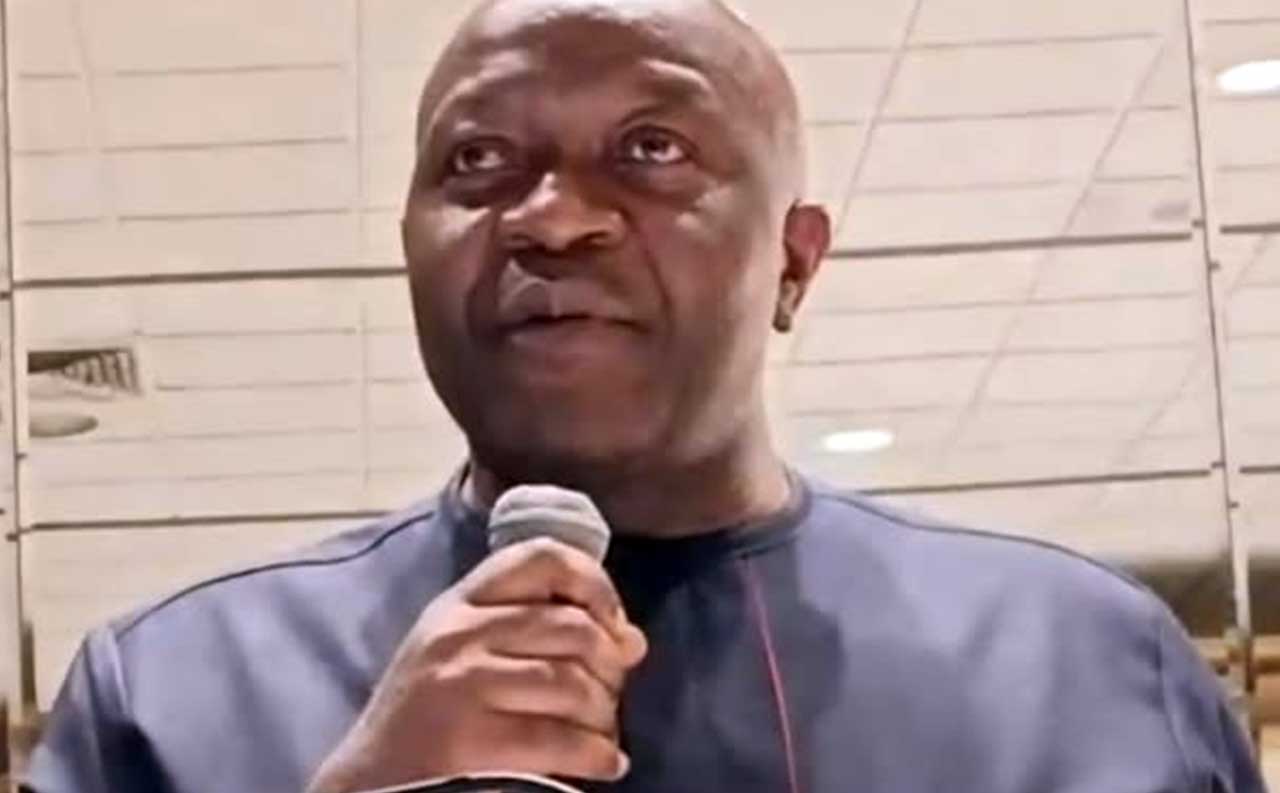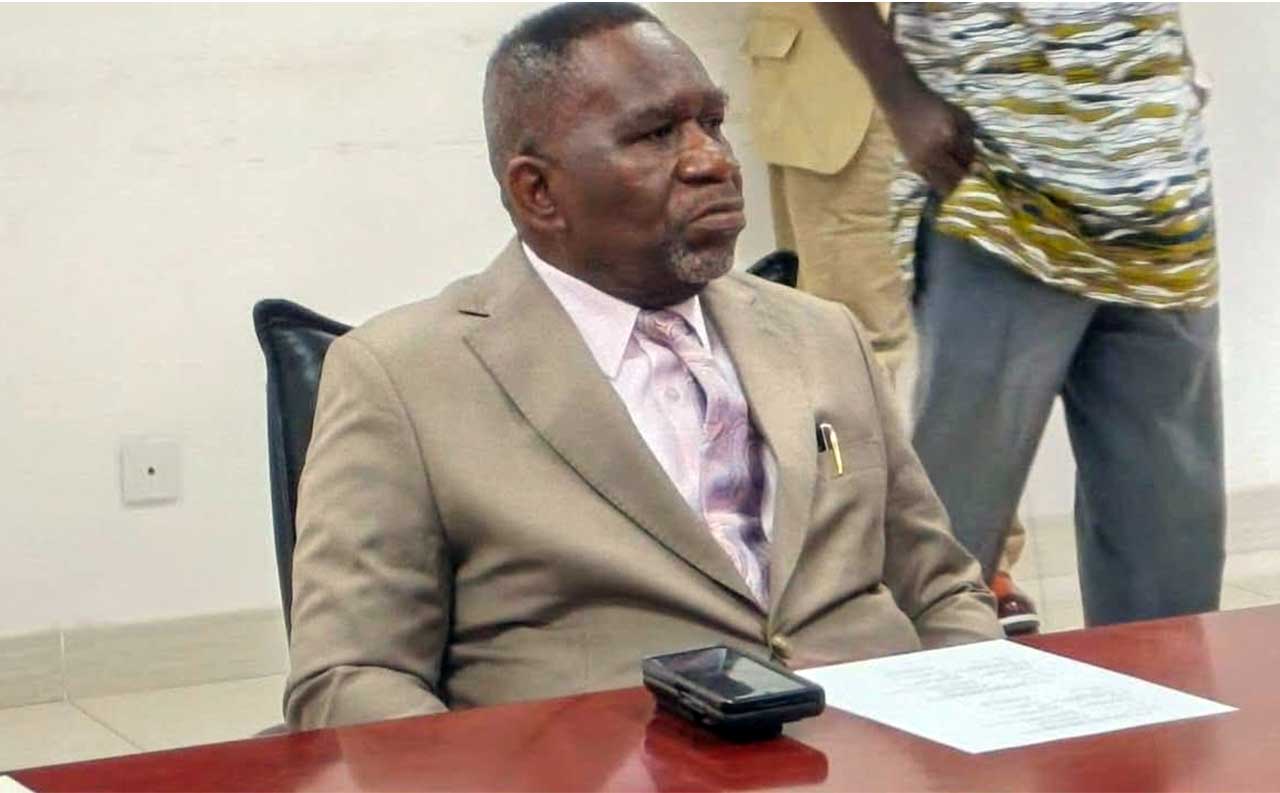Finance and Development Planning Minister Augustine Kpehe Ngafuan has revealed that the Government of Liberia has begun to pay domestic debt to media entities whose claims for payments have been duly vetted as valid by the General Auditing Commission (GAC).
Serving as Keynote Speaker at the 13th National Convention of the Association of Liberian Journalists in the Americas (ALJA) held in Greenlight Maryland, UAS, on Saturday, October 18, 2025, Minister Ngafuan stated that over the last couple of days, the Ministry paid a portion of the valid claims of media entities and intend to continue to make payments until all the claims are fully settled.
Minister Ngafuan noted that to speak to a group of journalists is ordinarily no small challenge, but the challenge gets even more difficult when the group one has to address is peopled largely by veteran, not rooky, journalists, many of whom have earned venerated spaces in the hearts and minds of Liberians and non-Liberians for their professional excellence and dedication to the noble craft of journalism.
“Mr. President and distinguished members of ALJA, you have asked me to address you on the theme, Private Sector Investment: A Key to Sustainable Economic Growth and Development in Liberia: The Role of the Media. This topic could not have been more appropriate because of a host of reasons, not the least of which is that private sector investment is at the very heart of our national development priorities and the surest path to achieving sustainable economic growth and development. In the same vein, the role of the media in achieving expanded private sector investment cannot be over-emphasized because the media, based on what it does or does not do, could serve as an enabler or a disabler of private sector investment.”
He listed a series of Country Risk Assessments by Investors and Some Suggestions of What the Media Can Do to Promote Private Sector Investment
According to him, a host of assessments and analyses are done before potential investors take the decision to invest significant amounts of capital in a country. Key among the analyses is country risk analysis, which is an assessment of the potential risks and uncertainties associated with investing or doing business in a particular country. It involves evaluating various factors that could impact the stability and profitability of investments. Some major components of a country risk analysis include the following:
Political Risk Analysis, which involves evaluating the stability of the government, potential for policy changes, and the effectiveness of institutions. Economic Risk Analysis, which entails assessing the country’s economic performance, including factors like GDP growth, inflation, and debt levels. Social Risk Analysis, which analyses social factors like demographics, income levels, and potential for social unrest.
Environmental Risk Analysis, which considering the impact of environmental factors like natural disasters, climate change, and resource depletion. Financial Risk Analysis: which evaluates the country’s financial system, including factors like banking stability, creditworthiness, and access to capital. Operational Risk Analysis, which assesses the business environment, including factors like regulatory frameworks, infrastructure, and human capital. Security Risk Analysis: which evaluates the level of security threats, including terrorism, crime, and conflict.
The Finance Minister told the gathering that to conduct country risk analyses, investors gather data on the sub-components of country risk from multiple sources including the media, adding that media institutions that are bent on sensationalism and half-truths may report in ways that cause a country to be perceived as unstable when the country is in fact stable; and such reports may fuel disharmony, social unrest and conflict among political, tribal, or religious groups. In some instances, as happened during the Rwanda in 1994, reckless disregard for facts and incendiary and hate-laden commentary can even lead to war and genocide.
He said this should in no way imply that journalists should paint an unnecessary rosy picture of what is really obtaining, urging that journalists or influencers of public opinion should consider themselves trustees for the public and should consequently uphold the tenets of the Journalist’s Creed, which among other things, states,
“I believe that the public journal is a public trust; that all connected with it are, to the full measure of their responsibility, trustees for the public; that acceptance of lesser service than the public service is betrayal of this trust. I believe that clear thinking and clear statement, accuracy and fairness, are fundamental to good journalism, I believe that a journalist should write only what he holds in his heart to be true. I believe that suppression of the news, for any consideration other than the welfare of society, is indefensible.”
Minister Ngafuan indicated that some specific things the Liberian media can do to support private sector growth and development in Liberia include:
Investment Promotion: Highlighting investment opportunities, showcasing local businesses, and attracting foreign investment by promoting Liberia’s economic potential. Highlighting Entrepreneurial Stories: Sharing success stories of entrepreneurs, startups, and small businesses, highlighting their challenges, innovations, and achievements.
Business News Coverage: Providing in-depth coverage of business trends, market analysis, and industry developments to inform investors, entrepreneurs, and policymakers. Investigative Reporting: Investigating and exposing issues that hinder business growth, such as corruption, bureaucratic red tape, or infrastructure challenges. And where an investor or business entity is falling to meet its commitments to workers and operating contrary to law and standards, reporting the missteps so that appropriate remedial or corrective actions are promptly taken.
Policy Analysis: Analyzing and reporting on government policies, regulations, and initiatives that impact the private sector, promoting transparency and accountability.
Economic Commentary: Providing expert analysis and commentary on economic issues, trends, and forecasts, helping to shape public discourse and inform decision-making.. Capacity Building: Participating in training and capacity-building programs to enhance knowledge of business, economics, and finance, enabling more effective reporting. To facilitate this, the Ministry of Finance encourages the resuscitation of the economic journalists’ association to cover evolving economic developments in the country. The MFDP is prepared to give training and other forms of capacity building support to journalists designated as economic journalists by their media institution Collaboration: Collaborating with other stakeholders, such as business associations, chambers of commerce, and economic development agencies, to promote private sector growth.
“Before we proceed further, let’s not forget that the independent media is not just a watchdog of society. Media entities, especially private media entities, are also business or private sector entities. And for the media to enable private sector investment, media institutions themselves must survive and thrive,” he noted.
Ngafuan said that government has to be an enabler of media robustness and growth by, at the minimum, paying for services rendered by the media for government institutions, indicating that if government fails or terribly delays to pay for services rendered by the media, it suffocates the media and makes it very difficult for media entities to pay their workers, cater for other bills and fully uphold their objectivity and independence.
“To reverse this trend, we have begun to pay domestic debt to media entities whose claims for payments have been duly vetted as valid by the General Auditing Commission (GAC). Over the last couple of days, we paid a portion of the valid claims of media entities and intend to continue to make payments until all the claims are fully settled,” the Minister said.
Minister Ngafuan: “Going forward, our commitment is to ensure that government pays the media for services rendered as promptly as possible, as delayed payments to small businesses can, in effect, be a death blow, To follow through on this commitment, I have tasked the Communications Unit at the Ministry of Finance to liaise with media entities and report to the Office of the Minister all outstanding payments to media entities so that necessary follow-ups can be done for prompt payment. We are not just doing this for the media. In fact, we are improving our systems and time budgeting various tasks in the payment review and approval chain at the Ministry of Finance so that those who render legitimate services for government can get their payments on time and are not at the mercy of any rent-seeking bureaucrats.”



